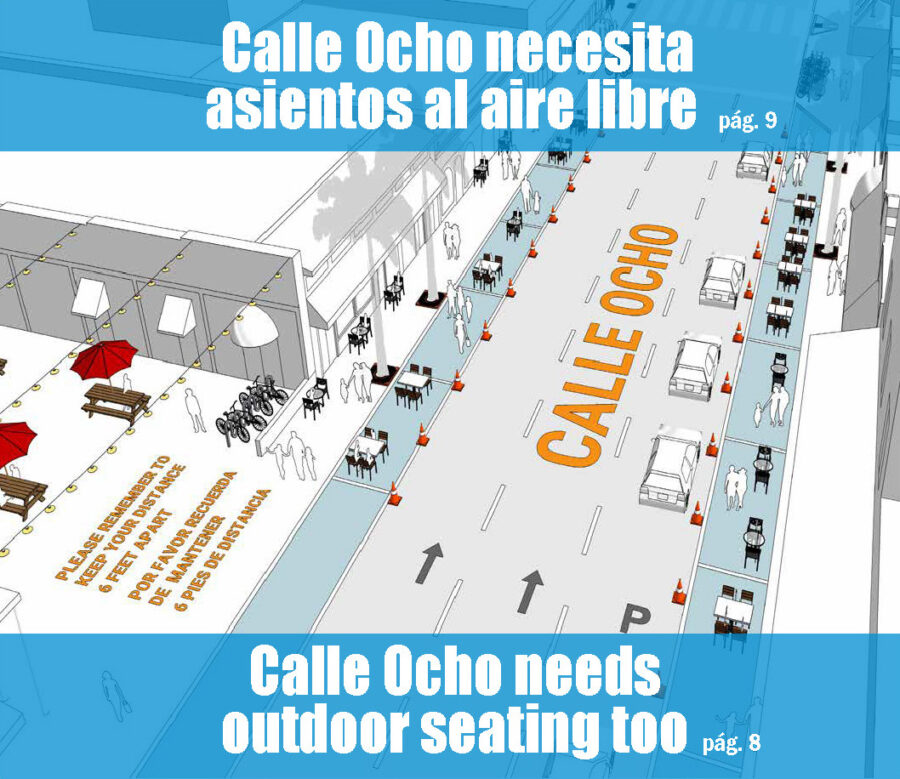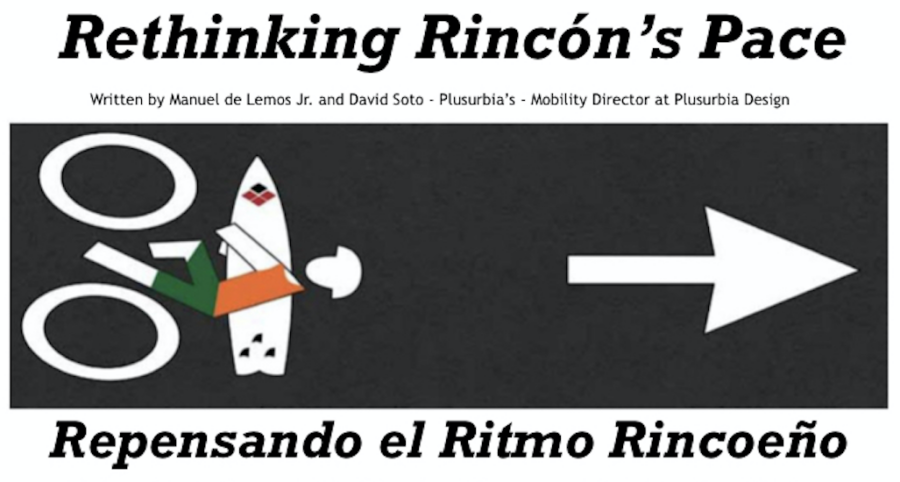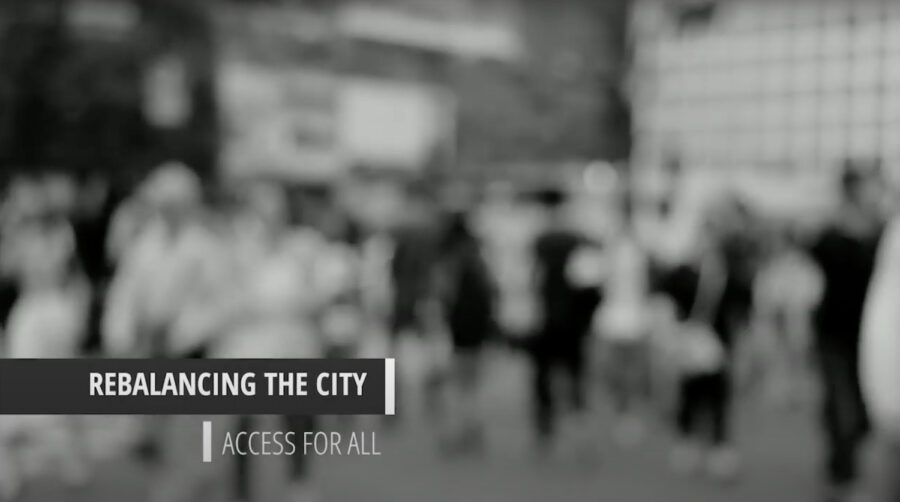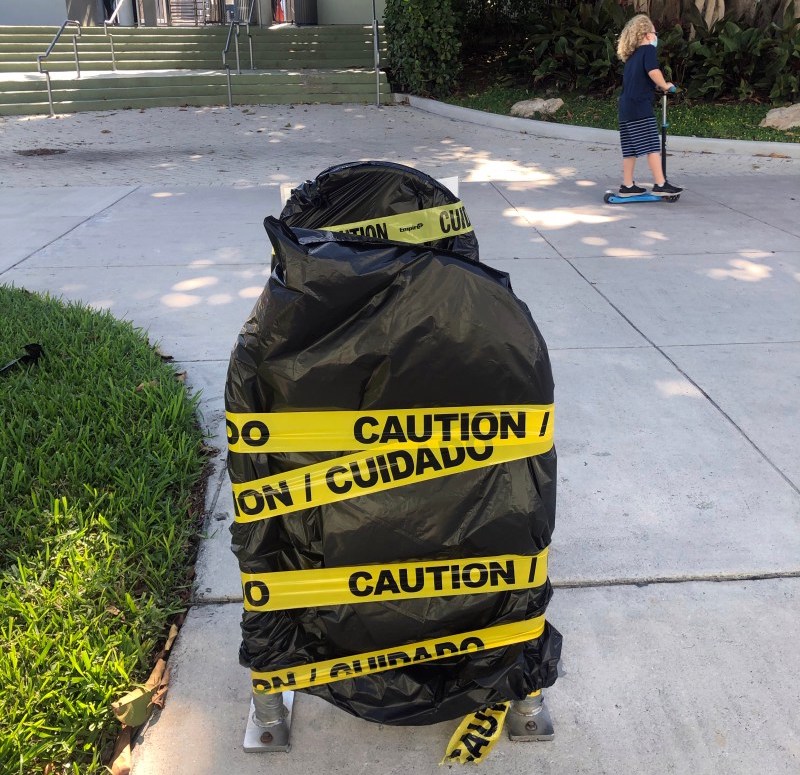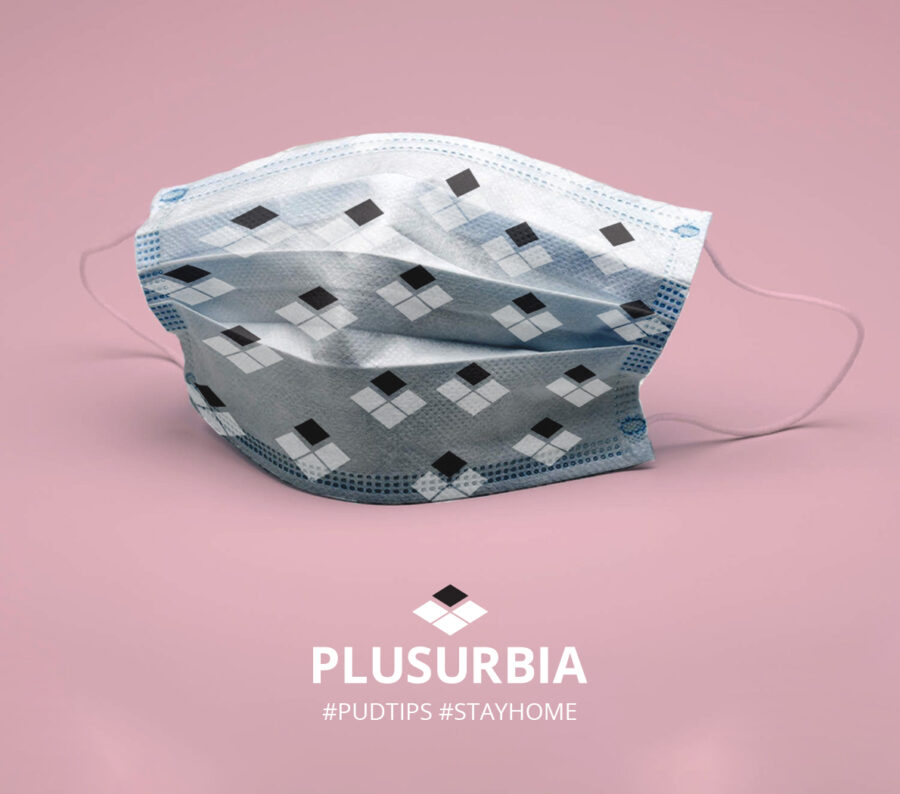our
news
AWARDS, ACCOLADES, PUBLICATIONS AND NEWS.
It fills us with pride to have been outlined as experts in cyclist mobility in Ciclosfera Magazine. Biggest thanks to Muévete en Bici Puerto Rico and the cyclist community for continuing to elevate our archipelago's presence as a cycling-tourism destination at the global forum..Read the article here: https://www.ciclosfera.com/…/ciclosfera-31-invierno-2019-2…/
Calle Ocho risks losing many businesses if the government does not allow for expanded outdoor seating by using parking lanes and closing streets.Brianna LopezJuly 8, 2020Little Havana business owners are finding themselves at an extreme loss of business as the COVID-19 pandemic continues for longer than anyone expected it to. For months, Calle Ocho has been clear of the tourists and visitors that would usually flood the streets because of the mandated shutdowns of many businesses, in addition to the closure of dining rooms in restaurants. Businesses have suffered tremendous losses because of the lack of foot traffic on the Calle Ocho strip.Calle Ocho is a South Florida pillar that thrives on tourism, travel, and restaurants. Many of the restaurants are family-owned, run by generations of families who began their journey to Miami when they immigrated from Cuba in the 1960s. These people know what it is like to start from nothing and have worked all of their lives to build their businesses, pouring blood, sweat, and tears into the restaurants and shops that tourists love to visit.To read the complete article, please click here.
Plusurbia's Manuel de Lemos and David Soto authored a piece regarding the high traffic volumes and speeds in Rincón, Puerto Rico, for El Coquí of Rincón Magazine. The article, "Rethinking Rincón's Pace," calls for rethinking mobility in Rincón. It advocates for proper investments in multimodal streets and emphasizes a community's need for access to safe streets, free from the risk of transit at dangerous speeds, and with universal access to people of all ages and abilities.Unfortunately, the need to mitigate the danger from speeding vehicles was highlighted when a tragic accident occurred in the area on June 10, 2020, in which one person died when a conductor lost control of their vehicle and crashed into an eating establishment where the victim was seated.Please follow the links below to access the news articles about the incident:El Vocero Puerto RicoTelemundo Puerto RicoBelow, the article published in El Coquí of Rincón magazine:
A healthy city calibrates and makes room for mobility changes on their streets over time to encourage low-tech safe and accessible options to move around. It needs to provide more balanced mobility options by reconsidering the amount of space for cars, pedestrians, bicycles, and transit - accommodating new technologies and trends.
Magic City mobility leaders are questioning the city's response to active transportation during the pandemic.By Marcia Duprat | May 19, 2020[caption id="attachment_4010" align="alignnone" width="800"] Bike racks were made inaccessible in parks across Miami in an ill-advised response to the COVID-19 pandemic. Source: Marcia Duprat[/caption]It started with the closing of bike shops.Early in the COVID-19 pandemic, Miami-Dade County’s COVID-19 shutdown deemed auto supply and repair shops essential — but forced the closure of bike shops. It set the stage for what has become an ongoing string of questionable policy decisions — decisions that, over time, have cemented an image of Miami as a place where car ownership affords you protection, while using greener, more socially responsible modes of transportation, like bicycles, puts you at a disadvantage.With traffic at an all-time low, we have been afforded a brief vision of a Miami without cars, forcing us to reconsider our relationship with our hostile streets. Miamians are embracing a new normal where walking and biking is safer than usual. Moreover, with public transportation undergoing service reductions and experiencing crowding, bikes are a far safer option for many of the 90,000 households in the county who do not own a car.Yet, the local government’s response to the crisis has unfortunately discouraged cycling as a solution.Parks recently reopened with an unusual caveat: while parking lots remain open, the use of bike racks is prohibited. Most U.S. cities are doing exactly the opposite, banning car parking as a measure to control crowding, thereby making parks available to neighboring residents within walking and biking distance. Miami Beach was forced to learn this the hard way when it had to close one of its most iconic parks, South Pointe, less than a week after reopening.Miami-Dade is also the only county nationwide to ban both shared bikes and shared scooters. Meanwhile, in cities from Tampa to Los Angeles, scooter- and bike-sharing companies have been offering free and low-cost trips to essential workers, taking steps to increase the frequency of sanitation, and adapting their service boundaries to be centered around the areas with the most urgent transportation needs, such as medical centers. Instead of deploying a variety of modes of transportation as a way to ease mobility during the crisis, our local government has continued the ban, putting those without a vehicle at a disadvantage.Our most vulnerable residents often face the severest effects of these policies. Until recently, food distribution occurred exclusively in drive-through settings. All current coronavirus testing sites except two still require a car. At a time when residents are facing grave economic consequences, policymakers continue to send a clear signal: keep your car payment.For decades Miami-Dade County has been overrun by policymaking that puts cars above every other mode of sustainable transportation. With traffic at an all-time low, now is the perfect opportunity to create safer streets for pedestrians and cyclists and a more sustainable future. Cities nationwide have been adapting their streets to accommodate social distancing, dedicate more space to outdoor restaurant seating, and expedite infrastructure projects such as wider sidewalks and new bike and bus lanes. But Miami is lagging behind or entirely absent from these trends, and car-focused road construction projects are being expedited. If this continues, the city is set to emerge from this crisis more car-dependent than before.The stakes are high – and human. Restaurant workers returning to their jobs on bicycles. Nurses relying on transit after 12-hour shifts. Communities where park space is already lacking, locked in by dangerous streets. Our actions as we recover from this crisis can shape the city we want to move towards. In ordinary times, we strive for mobility to be the great equalizer – granting access to opportunities that can change people’s lives for the better. Amidst this crisis, we have to ensure the opposite doesn’t happen – that communities that have been left behind are connected, literally, to our recovery efforts with new pedestrian, cycling, and transit efforts.Elected leaders and administrators need to take a hard look at how cities have adapted with policies that foster a present and a future where bicycling and safer, sustainable mobility is part of the solution – rather than the problem.This article is authored by. Marcia Duprat is the Campaign Manager at Transit Alliance, a non-profit advocating for walkable streets, bikeable neighborhoods, and better public transit in Miami-Dade County. It is co-signed by the following: The League of American Bicyclists, Bill NesperBike Coconut Grove, Hank ResnickBike SoMi, Maricé ChaelDover, Kohl & Partners, Victor DoverKittelson & Associates, Fabian De La EspriellaPlusurbia Design, Juan MulleratPlease click here to view the full article online.
ACCESSORY DWELLING UNITS IN A TIME OF PANDEMICSAn accessory dwelling unit (ADU) on your property can serve as housing for front line staff and medical professionals who can't go home during this crisis. If you own an ADU, reach out and help!PEOPLE STREETSLimiting the circulation of cars enables the creation of “people streets” for essential workers and grocery shoppers to accomplish their daily needs while maintaining social distancing #OpenStreets HAPPY EARTH DAYHappy Earth Day! Air pollution has already decreased due to less vehicle use during this crisis. Let's work together and redesign our cities to keep this going! #earthdayeverydayVideo possible with Google EarthURBANISM AND THE IMPACTS OF CORONAVIRUSBUILD PARKLETS. SAVE OUR RESTAURANTS.EXTENDING SIDEWALKS FOR OUTDOOR SEATING[video width="720" height="404" mp4="https://plusurbia.com/wp-content/uploadsold/2020/04/20200521-Extending-Sidewalks-Plusurbia-sm.mp4"][/video] WORLD BICYCLE DAYLet's continue to promote the use of bicycles to improve the environment and our physical and mental health. All places should build the necessary infrastructure to ensure people are safe when riding a bike. #TransformMobility #WorldBicycleDayADAPTING FOR COVID19: EMBRACING MIAMI'S VENTANITAS + PARKLETS!
We use cookies
We use our own and third-party cookies to be able to correctly offer you all the functionalities of the website for analytical purposes. You can accept all cookies by clicking "Accept cookies", obtain more information in our
Website Policyor configure/reject their use by clicking on Settings".
Accept cookies
SettingsBasic cookie informationConfirm preferences
This website uses cookies and/or similar technologies that store and retrieve information when you browse. In general, these technologies can serve very different purposes, such as, for example, recognizing you as a user, obtaining information about your browsing habits or customizing the way in which the content is displayed. The specific uses we make of these technologies are described below. By default, all cookies are disabled, except for the technical ones, which are necessary for the website to work. If you wish to expand the information or exercise your data protection rights, you can consult our Website Policy.
Accept cookiesManage preferencesTechnical and/or necessary cookies
Always active
Technical cookies are those that facilitate user navigation and the use of the different options or services offered by the web such as identifying the session, allowing access to certain areas, filling in forms, storing language preferences, security, facilitating functionalities. (videos, social networks…).
Analytic Cookies
Analysis cookies are those used to carry out anonymous analysis of the behavior of web users and that allow user activity to be measured and navigation profiles to be created with the objective of improving websites.
